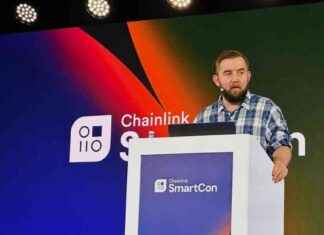ALICANTE, 19 Sep. (EUROPA PRESS) –
Researchers from the Applied Electrochemistry and Electrocatalysis Group of the University of Alicante (UA) participate in the Life Elektra project to address the problem of nitrate contamination of surface and underground water masses, the presence of which in excess in water is harmful both for human health and ecosystems.
Specifically, the European Commission, through CINEA -European Executive Agency for Climate, Infrastructure and Environment, has assigned this Life project of circular economy applied to the elimination of nitrates, generation of hydrogen and recovery of waste in drinking water , as indicated by the academic institution in a statement.
Life Elektra is coordinated by Aguas de Valencia and has a multidisciplinary consortium made up of the UA, the University of Valencia, the Energy Technology Institute (ITE), Apria Systems S.L, the Canary Islands Institute of Technology, the Water Service Corporation (WSC ) of Malta and REDINN (Rete European dell’Innovazione), based in Italy.
The UA research group and Aguas de Valencia have an “extensive history of collaboration” in different projects to address the challenge of eliminating nitrates from contaminated water through its electrochemical reduction to nitrogen gas, an inert gas. Nitrate is a chemical salt derived from nitrogen found in water and soil resulting from the use of fertilizers.
Professor Vicente Montiel, principal researcher at the UA in the Elektra project, has pointed out that the relationship with Aguas de Valencia began in 2016, with the UA’s own program for the completion of an industrial doctorate. “After proposing several solutions for the treatment of water salinity, we patented a procedure to eliminate nitrates in water through electrolytic reduction,” he detailed.
After these years of joint work, the Elektra project was born in 2021, funded by the Agència Valenciana de la Innovació (AVI), to validate on an industrial scale the electrochemical denitrification technology developed by UA researchers.
“Currently, thanks to the Life program of the European Commission and once again expanding the work team, we are going to continue improving the electrochemical processes in wastewater treatment plants in Gandia (Valencia), the Canary Islands and Malta,” said Montiel. .
The objective of the Life Elektra project is to reduce the concentration of nitrates in the integral water cycle, creating an “integrated, innovative, simple, economical, sustainable and transferable” system, based on the use of electrochemical denitrification to eliminate nitrates towards its conversion into gaseous nitrogen, boosting the decarbonization of the process through a renewable integration analysis focused on photovoltaics, hydrogen and other means of optimization.
With a duration of 42 months, the project will begin in October of this year and will address three case studies, located in Spain (Gandia and Gran Canaria) and the Republic of Malta, each with different characteristics, but with the same challenge to address. nitrate pollution.
During the execution of the project, a mobile pilot plant will be designed and built that will incorporate a hybridization system with renewable energies to cover the needs of the process.
The Life Elektra project has a budget of 2,329,944.26 euros, of which the European Union finances 60 percent. The Life program is the only financial instrument of the European Union dedicated exclusively to the environment.
The objective of the EU Life program for the period 2021-2027 is to contribute to the shift towards a clean, circular, energy efficient, low-carbon and climate change-resistant economy, including through the transition to clean energy; to the protection and improvement of the quality of the environment.






